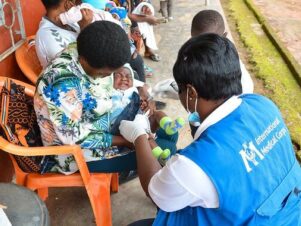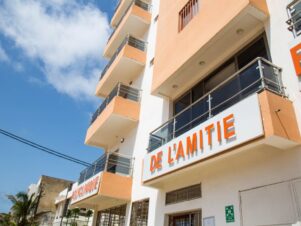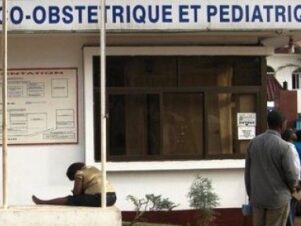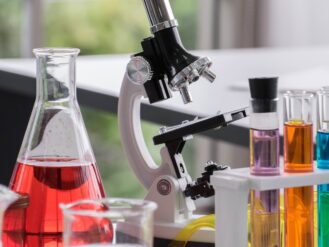Since HIV symptoms can take years to show up, the only way to know if you have HIV is to get tested for HIV. If you think you’ve HIV then you need to get tested. I am the head of medical laboratory at bigmanlab and in this article I’m going to be telling you about how HIV Diagnosis is done at Bigmanlab.
Bigmanlab provides HIV tests to everyone at a much subsidized rate. We equally ensure that your results are delivered to you on same day of testing. Home sampling and testing kits are equally available. Bigmanlab advises people at high risk of contracting HIV to get tested regularly.
Why do an HIV test?
Knowing quickly if you do have the HIV virus means you can begin treatment immediately to live long and feel much better. You may equally take necessary steps to avoid spreading the virus to others. As early treatment for pregnant women means they are unlikely to pass it on to the baby, it is even more important should get tested for HIV.
When to go for an HIV test?
If you think you have HIV, call your healthcare provider right away. The sooner you’re diagnosed, the sooner you can begin with treatment and avoid getting severely sick. One to three months after exposure to an HIV infection, some HIV tests may need to be repeated, but I don’t recommend you wait that long before seeking help.
Bigmanlab sex health providers can talk to you about getting tested and whether you should take lifesaving HIV medications. If taken within 72 hours of exposure to the HIV virus, medications against HIV called PEP (post-exposure prophylaxis) can prevent infection.
What about how HIV test work?
There are basically two ways to get results for HIV diagnosis:
- Lab test: I will take your blood sample and analyze it. Within few days you’ll get results.
- Rapid test. You will normally get results in about 20-30 minutes. You can do it at home or at bigmanlab.
What about HIV detection and diagnosis?
No particular test is able detect the HIV virus immediately after infection even though the test are extremely accurate. The type of test used will determine how quickly a test can detect HIV. At bigmanlab we conduct three types of HIV diagnostic tests: NATs (nucleic acid tests), antibody/antigen tests, and antibody tests.
Nucleic acid tests:
This type of test is aimed and finding the actual HIV virus in the blood. I normally consider this test those who have potential exposure with early symptoms of HIV or have been recently exposed and tested negative for antibody/antigen or antibodies tests. This test normally detect HIV virus some 10-33 days after exposure.
Antibody tests:
Here I look for HIV antibodies in a person's oral fluids or blood. To detect HIV after exposure and antibody tests can take 23-90 days. Antibody tests constitute most rapid tests and HIV self-tests. In general, tests that use blood from oral fluids or fingertip can detect HIV less rapidly after infection than tests that use blood from a vein.
Antibody/Antigen test:
Here we look for HIV antigens and antibodies. When your immune system is exposed to viruses such as HIV, it produces antibodies. Foreign substances called antigens can activate your immune system. An antigen called p24 is produced when you have HIV, even before antibodies are developed. The antigen/antibody test is mostly used at bigmanlab for testing and is common in the Cameroon.
Laboratory tests for antigens/antibodies using venous blood can usually take up to 18-45 days to detect HIV after exposure. We equally have do rapid fingertip antibody/antigen test. Antibody/Antigen tests performed on fingerstick blood may take 18-90 to detect HIV days after exposure.
What about types of HIV tests?
There exist 4 principal types of HIV tests:
- Home test kit: With this type of testing you take a small sample of your blood or saliva and test at home. It will show results in minutes.
- Blood tests: With this type of test, a nurse collects blood from a patient and sends to me in laboratory for analysis. Results are usually available within a few days or the same day.
- Home Sampling Kit: Here you take a small sample of your blood or saliva at home and send it to the lab to be tested. I will contact by SMS or phone with the results within few days.
- Point-of-care test: Here a small drop of blood from the finger or a sample of saliva is taken from the mouth by a nurse. The results are usually available in a matter of minutes and there is no need to send these samples to a lab.
What about results for HIV diagnosis?
At bigmanlab your name is not associated with the results of some tests and they are referred to as anonymous test. Others HIV test are confidential: It’s protected by data protection laws though your information is attached to the test results.
Negative test result:
There are steps you can take to protect yourself from HIV if you test negative. These include taking PrEP medicines (pre-exposure prophylaxis drugs) and practicing safe sex. Your partner can still contract the virus even if your test result is negative.
I recommend you tell them to take the HIV test. Before you have enough HIV antibodies to have a positive result on some tests, it can take up to 6 months. If you test negative after 3 months or less of you think you were probably infected, I recommend you retest again after 6 months just to be sure.
False negative test results:
“False negative" result are equally possible with some HIV test methods. I mean, the test says you don't have HIV, but you do. This can happen if you were tested before or at the beginning of your specific HIV test window period. People taking antiretroviral drugs for PEP or PrEP occasionally show false negative results. Otherwise, after the window period it is very rare to get a false negative result.
Positive test result:
Finding traces of HIV in your body will characterize a positive test result. I do not diagnose HIV with just single test result. I normally use a standardized test to confirm a rapid test for HIV. After a laboratory diagnosis, I can confirm with a more detailed blood tests:
- Antibody differentiation between HIV-2 and HIV-1.
- Indirect immunofluorescence assay or Western blot.
The most advanced stage of the disease AIDs defines a positive HIV test. Contact bigmanlab right away about starting a medicine for HIV treatment called ART (antiretroviral therapy), that will prevent you from getting AID. Sometimes HIV tests can’t detect HIV in your body as ART reduces the amount of HIV virus in your body. By preventing your HIV infection from progressing to AIDS, ART equally protects your immune system.
False positive results:
Incorrect results are very possible when using certain HIV testing methods. When a test shows that you have HIV when you do not, we refer to this as false positive. This sometimes happens when HIV test screens for other antibodies, and not for HIV antibodies.
In rare cases, false positive results may be due to laboratory misinterpretations or errors. The rapid saliva test is much more likely to give an incorrect positive than other HIV tests. I always do a blood test to confirm the diagnosis If my patients show a positive result on the rapid oral test.
Message from Bigmanlab
Take steps to protect yourself and others if you think you may have HIV, before your visit to bigmanlab. Do not have sex without a condom. Always use a clean, new syringe when using illegal injection drugs. Do not share sharp objects with other people.







